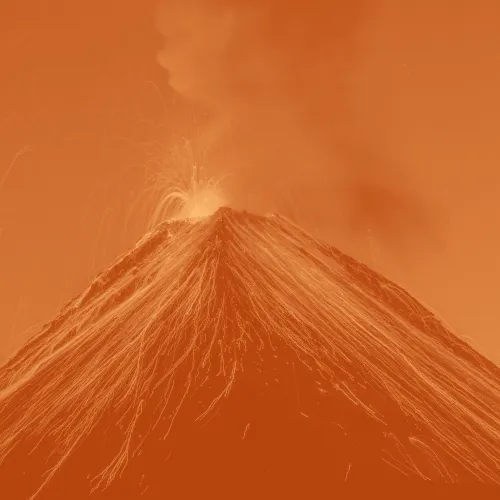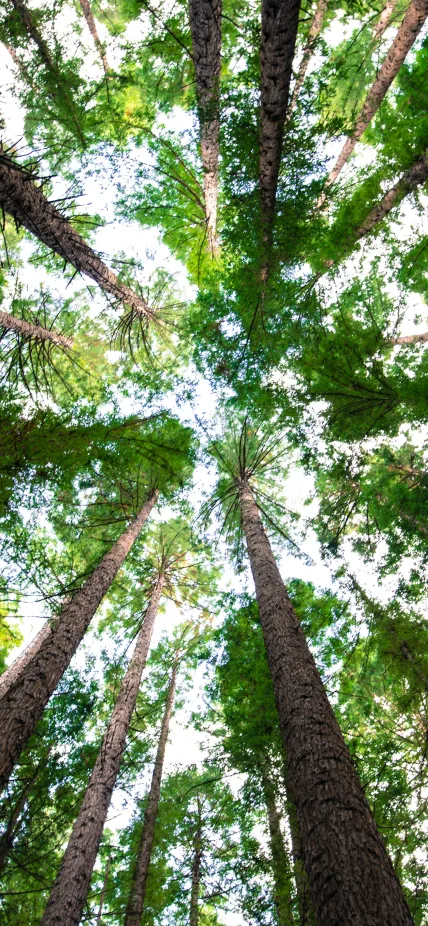On the Horizon

New Climate and Resilience Hub to tackle sustainability across disciplines
Carnegie Science is building on our decades-long leadership in climate, energy, and Earth systems research to launch the Climate and Resilience Hub, which will meet the urgency of the moment with a cross-disciplinary approach that incorporates the expertise of dozens of Carnegie Science principal investigators, ranging from ecology to volcanology to astronomy.
Our organization is devoted to supporting some of the world’s leading scientists in addressing humanity’s most pressing problems in an atmosphere of expansive intellectual freedom. This hallmark flexibility makes Carnegie Science an ideal venue for the cross disciplinary collaboration needed to take on one of the greatest challenges of our time—climate change.
Headed by Anna Michalak, a Staff Scientist who led Carnegie Science’s former Department of Global Ecology between 2020 and 2023, the Hub is a new organization-wide center that will help to coordinate our broad expertise to facilitate, enable, and scale work in climate and sustainability.
“Much as we are at an ‘all-hands-on-deck’ moment in terms of the urgency of the climate crisis, we also recognize that we need ‘all-disciplines-on-deck’ if we are to identify and seek creative solutions,” Michalak said. “I want to bring in those with experience studying atmospheric chemistry of exoplanets or the climate effects of geophysical phenomena as well as those who have spent their careers developing high performance computing and engineering skills in
astronomy and the geosciences.”
This effort includes researchers from across all three Carnegie Science divisions with the necessary technical and scientific expertise for tackling problems in climate, resilience, and sustainability. More than a third of Carnegie Science’s Principal Investigators—representing disciplines as varied as aquatic ecology, climate science, volcanology, and astronomy—have already joined the Hub and are committed to lending their time and expertise to its mission.
Members of this Hub community have identified some early areas of focus that are well-matched to the breadth of their expertise. These include studying volcanic activity as a window into both atmospheric climate processes and ecosystem resilience in the oceans; developing approaches for more deeply integrating computational modeling with data from multiple field sites at scales spanning from genomes to ecosystems; and expanding our understanding of resilience in the context of climate and sustainability by viewing it from perspectives as diverse as food, water, energy, infrastructure, adaptation, geohazards, and early warning systems.
The Hub is designed to amplify scientific impact by facilitating partnerships between Carnegie Science researchers and external groups, including non-traditional research partners such as private sector groups, NGOs, philanthropies, and international research organizations. It will also serve as a training ground for a cohort of postdoctoral fellows looking to leverage skills and expertise acquired as part of Ph.D. programs across a variety of science and engineering disciplines to challenges in climate and resilience.
Keep Reading
Carnegie Science’s legacy is one of bold questions and transformative discoveries. Together, we continue to explore the unknown and unlock the secrets that shape our world—and beyond.
The numbers behind Carnegie Science’s impact.
Our scientist's recent achievements and the newest members of our team.
Your investment in Carnegie Science fuels bold exploration.
Unraveling the intricate relationships that sustain life on Earth, exploring the distant reaches of the cosmos, and more.




